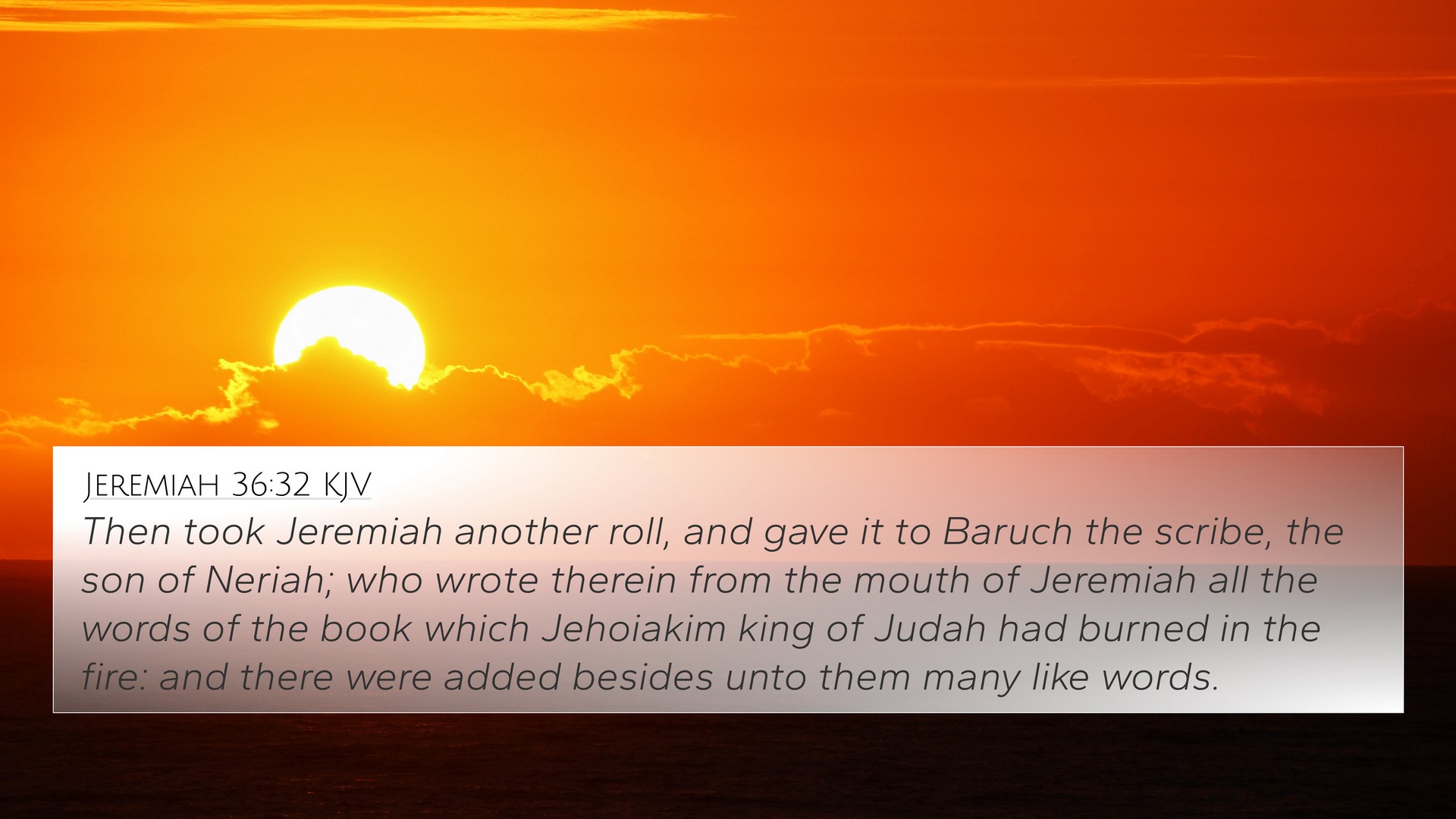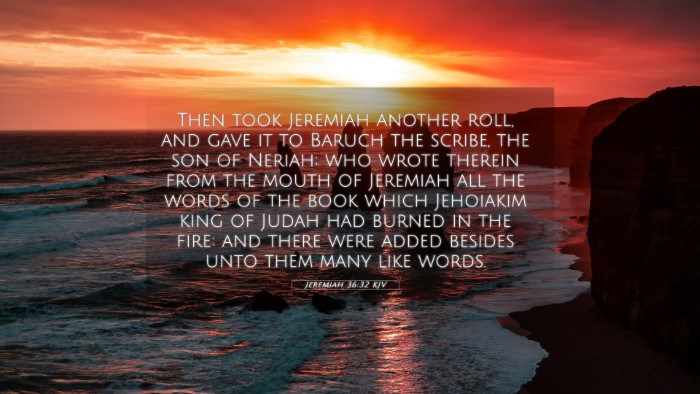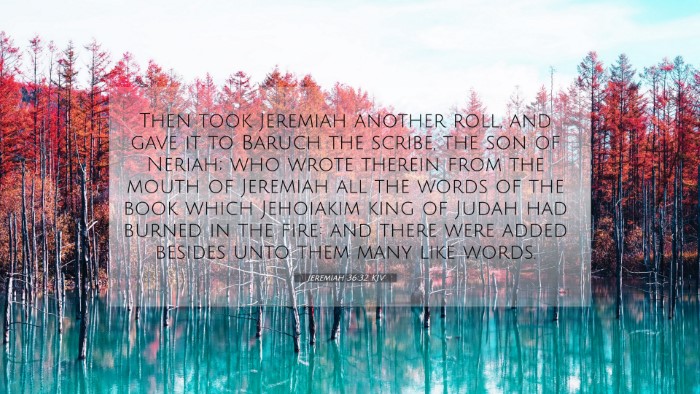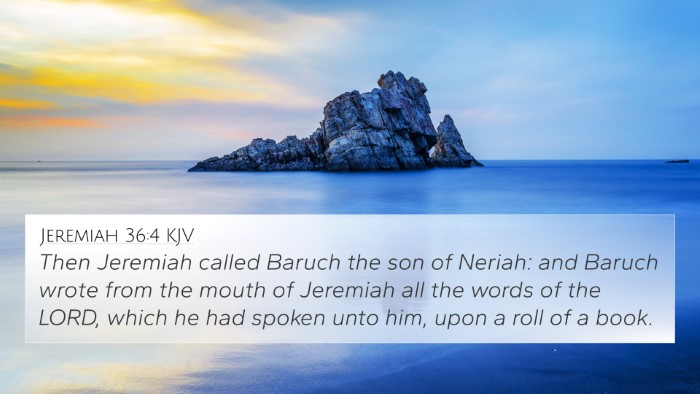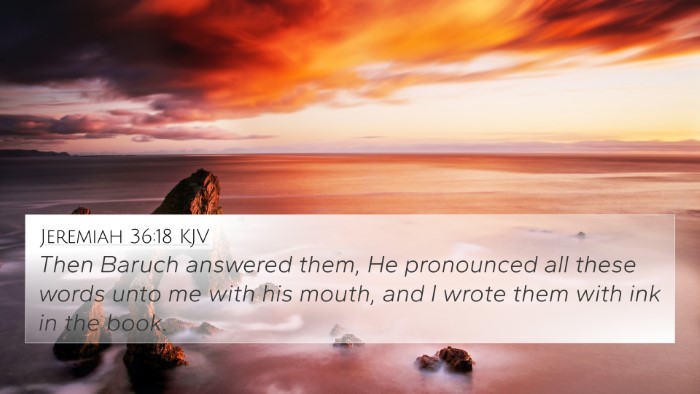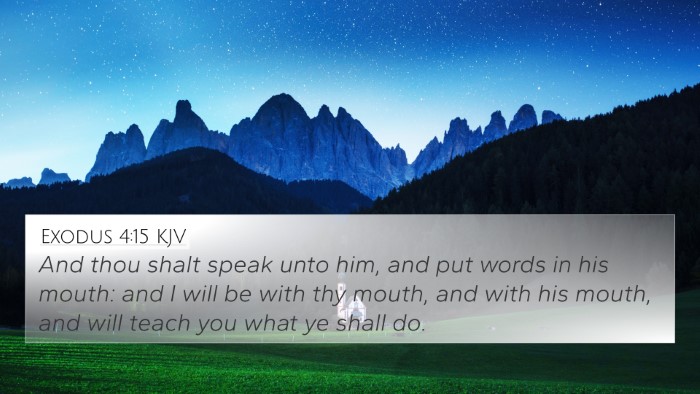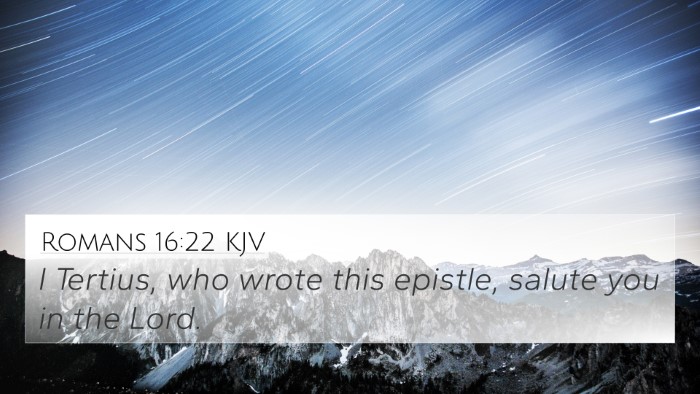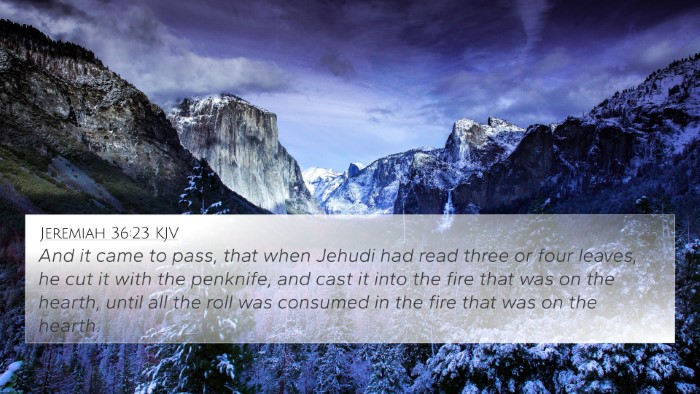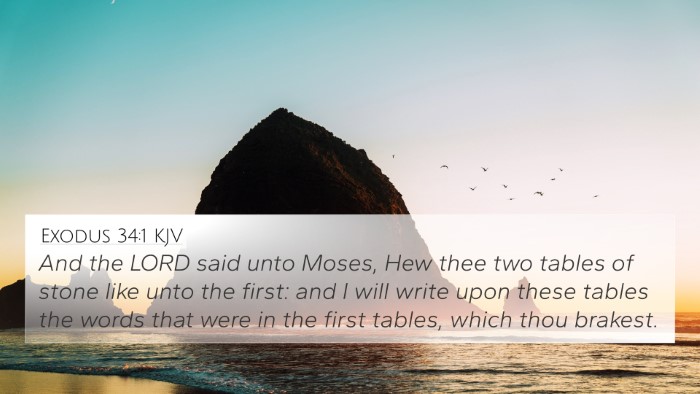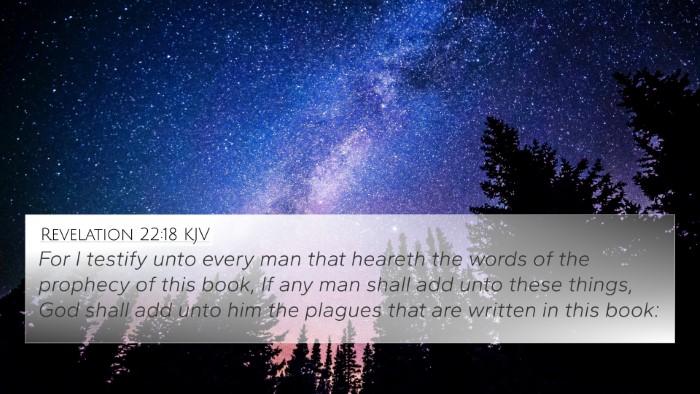Understanding Jeremiah 36:32
Jeremiah 36:32 states, “Then took Jeremiah another roll, and gave it to Baruch the scribe, the son of Neriah; who wrote therein from the mouth of Jeremiah all the words of the book which Johoiakim king of Judah had burned in the fire: and there were added besides unto them many like words.” This verse signifies a pivotal moment in the prophetic ministry of Jeremiah, reflecting both the resilience of divine revelation and the persistent resistance of human authority.
Summary of Insights from Public Domain Commentaries
In exploring the meaning of Jeremiah 36:32, multiple commentaries offer substantial insights:
Matthew Henry's Commentary
Henry emphasizes the unwavering nature of God's message as represented by Jeremiah’s action of rewriting the scroll. He highlights that despite King Jehoiakim’s destruction of the first scroll, God's word cannot be extinguished, and His messages must prevail. This act underscores God's promise and the strength of His prophets, serving as a reminder of the importance of faithfulness to divine instruction.
Albert Barnes' Notes
Barnes interprets this verse as a vivid illustration of God's sovereignty and the need for perseverance in the face of opposition. His analysis indicates that the act of re-issuing the scroll with additional words signifies not only God’s provision for His people but also serves as a testament to the expansive nature of His decree, reiterating that God's truth will always find a way to be communicated and understood, regardless of human interference.
Adam Clarke's Commentary
Clarke examines the significance of Baruch's role as a scribe and the implications of the act of rewriting. He notes that Baruch’s obedience and initiative in preserving the message illustrate the importance of scripture in the life of believers. Clarke also points out the additional words added to the scroll suggest that God has more to reveal, enhancing the message already given and providing deeper guidance for His people.
Key Themes and Ideas
- The indestructibility of God's Word: The attempt to destroy the sacred texts by King Jehoiakim failed and instead affirmed the eternal nature of God's message.
- The role of scribes in preserving divine truth: Baruch’s work showcases the importance of faithfully recording and disseminating God’s messages.
- Perseverance in prophetic ministry: Jeremiah’s commitment to continue delivering God’s word, even after opposition, exemplifies the resilience of faith.
- The revelation of additional truths: The added words signify God’s willingness to share further insights into His will and nature.
Bible Verses Related to Jeremiah 36:32
- Revelation 10:10-11 - Emphasizes the necessity of delivering God's messages despite opposition.
- Isaiah 55:11 - "So shall my word be that goes out from my mouth; it shall not return to me empty," reflecting the effectiveness of God's word.
- Psalms 119:89 - "Forever, O Lord, your word is firmly fixed in the heavens," which speaks to the eternal nature of scripture.
- 2 Timothy 3:16 - Indicates that all scripture is inspired by God and useful for teaching as a confirmation of its ongoing relevance.
- Matthew 24:35 - "Heaven and earth will pass away, but my words will not pass away," reinforcing the permanence of divine truth.
- Jeremiah 1:19 - God assures Jeremiah that he would be preserved from opposition, highlighting divine protection in prophetic missions.
- Luke 21:33 - Similarly assures that the words of Jesus will endure forever, connecting with the sentiment of durability in scripture.
- Acts 5:39 - "But if it is of God, you will not be able to stop these men; you will only find yourselves fighting against God," reinforcing God’s sovereign control over His word.
- Proverbs 30:5 - "Every word of God proves true; he is a shield to those who take refuge in him," supporting the truthfulness and reliability of scriptures.
- Romans 10:17 - "So faith comes from hearing, and hearing through the word of Christ," delineating the essential role of the word in the life of believers.
Conclusion
Jeremiah 36:32 encapsulates profound truths about the enduring nature of scripture and the resilience of those who communicate it. Through cross-referencing related verses, one can appreciate the overarching themes of God’s sovereignty, the importance of preservation of His message, and the encouragement to steadfastly hold to His word amid challenges. The connections found within the Bible encourage a deeper understanding of God’s continual communication with humanity throughout history.
Using Cross-References for Deeper Study
Engaging with materials that include bible concordances and bible cross-reference guides can enhance your study and understanding of passages such as Jeremiah 36:32. These tools assist in recognizing bible verses that relate to each other and in constructing a robust theological framework for interpreting scriptural narratives.
Further Reading on Related Themes
- Cross-referencing themes in the Bible
- Diving into the Old and New Testament connections
- Comparative analysis of prophetic writings
- Exploring Bible verses that support prophetic declarations
